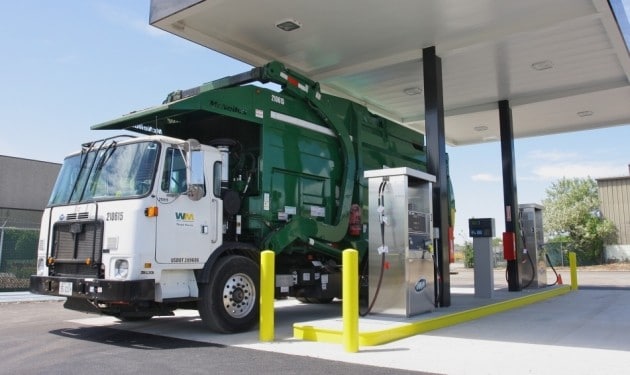You’ve probably heard a lot of buzz around renewable natural gas (RNG). Unlike natural gas that’s derived from deep underground wells, RNG comes from organic waste material sourced from dairies, landfills, and water treatment plants. Some states like California are pushing hard for this alternative energy source to decarbonize the sectors that already depend heavily on CNG, as well as keep organic waste and manure out of landfills and water supplies.
Western Milling is one company that’s hopping onboard, having already purchased heavy-duty trucks that run on RNG, and building its first CNG station in California’s Central Valley under its brand Kruse Western Renewable Fuels. Most recently, all of their vehicle maintenance technicians were getting a full CNG education by taking NGVi’s Levels 1 – 3 training.
If you’re wondering whether the use of RNG over CNG really makes a difference for your fleet operations, you’ll be glad to hear that the answer is a resounding no. That said, these are the typical questions we see from folks who are contemplating the switch:
Will our CNG fleet vehicles be able to run on RNG? Absolutely. Both traditional CNG and RNG are primarily methane, and “act” in the same way regardless of the natural gas fuel system you’re using. The only difference is where the fuel is sourced. No vehicle fuel system modifications are required.
Does RNG affect our fleet’s performance capabilities differently than CNG? Similar to above, the end product is the same, so vehicle performance stays the same.
Do vehicles operating on RNG require different maintenance or inspection standards than those for CNG? All standards are the same—including the frequency at which you should be performing general visual and detailed visual inspections of your fuel systems.
What are the benefits of RNG? Some proponents argue that it’s eco-friendly and cost-effective compared to all-electric, while others point to the cost savings, convenience, and abundance of natural gas already available underground.
Regardless of where you source your natural gas transportation fuel, the same holds true: make sure that your technicians are up to date on the latest training on how to effectively inspect, maintain, and repair your natural gas vehicles. That’s where we can help.

